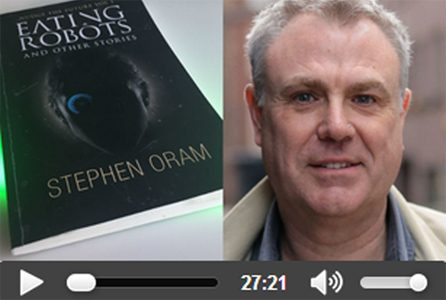During my visit to the Bristol Robotics Lab I heard about the danger of human shaped robots because we naturally attribute them with human qualities they don’t have.
This got me thinking about artificial intelligence that’s embodied in non-human forms but still shows human type behaviour. After all, it’s coded by humans and learns how to behave from humans.
That was part of the inspiration behind The Mythical Moss.
Over the past few months, a film of me reading this story has been in the exhibition, Only Human: Believing the Strangest Things, Loving the Alien. The exhibition recently ended so I can now share the exhibit with you.
I hope you enjoy the story and it doesn’t cause you to spend too much time wondering about what might be lurking in the nooks and crannies of your life.
photo credit: dreaming_of_rivers Intimidation via photopin (license)



